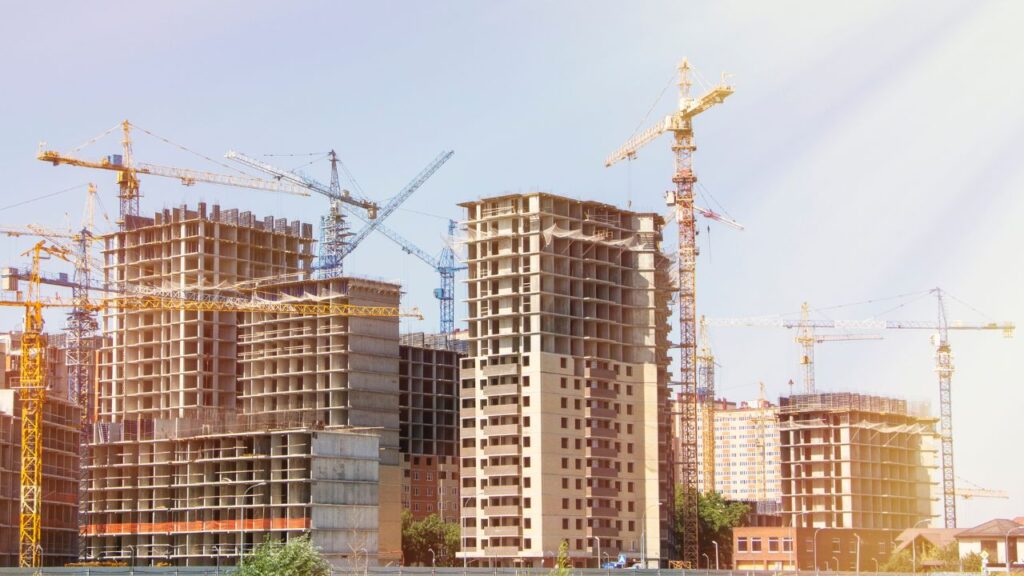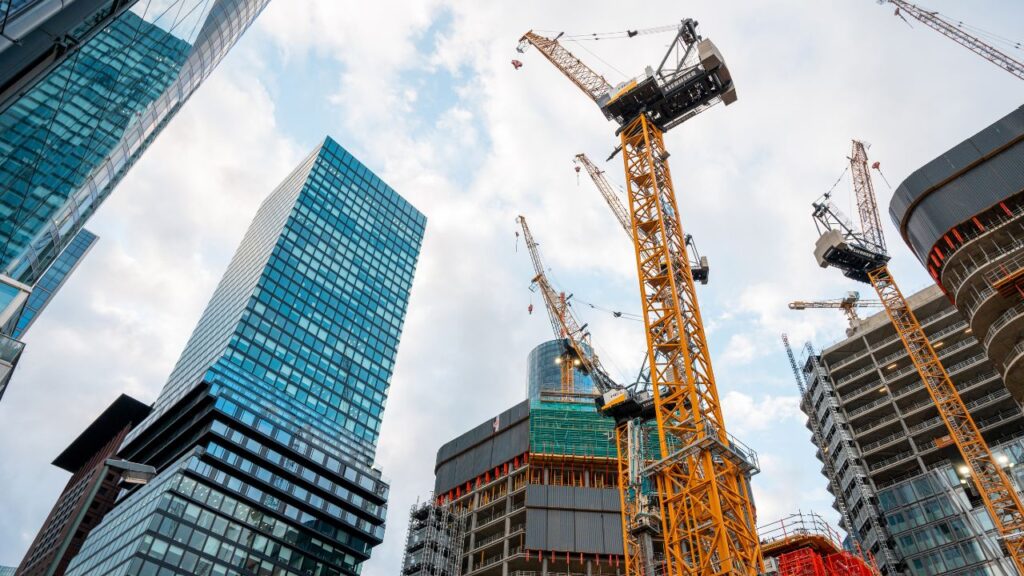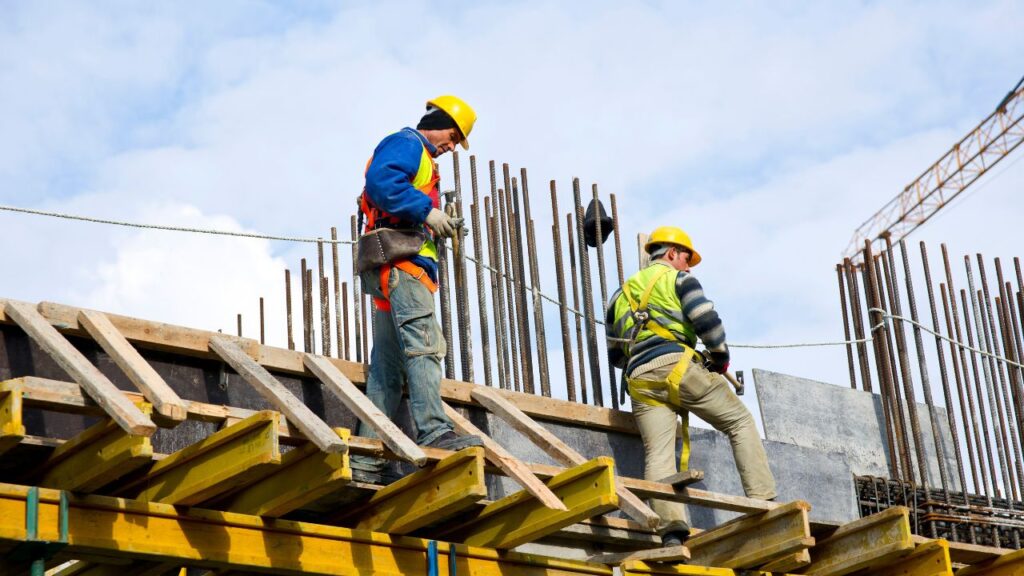A Wining Cost Estimate That Helps You To Win More Construction Projects

Accurate cost estimation is crucial for successful industrial construction projects. Without a reliable estimate, projects can face budget overruns, delays, and compromised quality. In this article, we will explore the key aspects of effective construction cost estimation in the context of industrial projects.
Industrial projects encompass a wide range of sectors, including manufacturing plants, power generation facilities, refineries, and infrastructure development. These projects often involve complex engineering, specialized equipment, and stringent safety requirements. Therefore, estimating the construction costs accurately is vital for the project’s success.

Several factors contribute to the overall construction cost estimation. Understanding and considering these factors is essential to develop a comprehensive estimate:
The scale and complexity of an industrial project significantly influence the cost estimation process. Larger projects with intricate designs and advanced technologies may require more resources and specialized expertise, resulting in higher costs.
The location of the project site and its specific conditions impact construction costs. Factors such as accessibility, soil conditions, environmental regulations, and proximity to suppliers and labor markets play a role in estimating costs accurately.
The prices and availability of construction materials can fluctuate over time. Estimators need to consider market conditions, transportation costs, and potential supply chain disruptions when estimating material expenses.
Labor costs and productivity rates can vary depending on the region and the type of project. Estimators must account for wages, overtime, labor laws, productivity levels, and potential labor shortages to accurately estimate labor costs.
Industrial projects must adhere to various regulatory requirements and obtain permits from authorities. Compliance with safety standards, environmental regulations, and building codes can impact the overall project cost estimation.

Various methods and techniques are employed in construction cost estimation. The choice of method depends on the project’s stage, available data, and desired accuracy. Some commonly used methods include:
During the initial project stages, estimators perform preliminary estimates based on high-level project information. These estimates provide a rough order of magnitude and help in the early stages of project planning and budgeting.
As the project progresses and more detailed information becomes available, estimators refine the cost estimation. This includes a thorough breakdown of project components, quantity takeoff, and measurement of materials, labor, and equipment.

Parametric estimation involves using historical data and statistical relationships to estimate costs. Estimators use key project parameters such as area, volume, or unit counts to derive cost estimates based on historical cost data from similar projects.
Estimators can obtain quotes from suppliers and subcontractors to accurately estimate material and labor costs. Historical data from past projects and industry benchmarks also provide valuable insights for cost estimation.
To ensure accurate and reliable cost estimates, several considerations should be taken into account:
A detailed breakdown of project components enables estimators to allocate costs accurately. This includes identifying and quantifying materials, labor, equipment, subcontractors, and indirect costs.
Accurate quantity takeoff is crucial for estimating material requirements and costs. Estimators need to carefully measure and calculate quantities based on project specifications and drawings.
Utilizing cost databases and specialized software tools can streamline the cost estimation process. These tools provide access to historical cost data, industry-specific benchmarks, and calculation capabilities for accurate estimations.
Estimators should assess potential risks and uncertainties that may impact the project's cost. Contingency planning helps account for unforeseen events, changes in scope, and market fluctuations.
Construction cost estimation is not without its challenges. Estimators must navigate the following hurdles to ensure accurate estimates:
Incomplete or evolving project requirements can pose challenges in cost estimation. Estimators need to collaborate closely with project stakeholders to gather accurate and up-to-date information.
Insufficient data or inaccurate project information can lead to faulty cost estimates. Estimators should verify and validate all available data sources to ensure the reliability of their estimations.

Construction material prices and labor costs are subject to market fluctuations. Estimators should monitor market trends and consider potential price changes to account for cost uncertainties accurately.
Scope changes or design revisions can significantly impact cost estimates. Estimators should carefully evaluate any modifications and adjust the estimates accordingly to avoid cost overruns.
Maximize your construction business’s potential with our competitive financing options

Implementing best practices can improve the accuracy and reliability of construction cost estimation. Here are some key practices to follow:
Engage project stakeholders, including owners, architects, engineers, and contractors, in the cost estimation process. Their expertise and input can contribute to more accurate estimates.
Cost estimates should be regularly updated and revised as the project progresses. Incorporating new information and adjusting estimates based on actual costs and market changes enhances accuracy.
Compare the current project with similar completed projects to identify cost trends and benchmarks. This helps estimators validate their estimates and ensure they are in line with industry standards.
Cost estimators should continuously improve their skills and stay updated with industry trends, new technologies, and cost estimation methodologies. Learning from past projects and sharing knowledge within the organization can enhance estimation capabilities.
Accurate cost estimation offers several benefits throughout the life cycle of an industrial project:
Accurate estimates enable project planners to allocate resources effectively and develop realistic budgets. This enhances project planning, reduces financial risks, and facilitates project approval processes.
Accurate cost estimation helps project stakeholders make informed decisions about resource allocation, procurement strategies, and project phasing. It enables efficient utilization of resources and cost-effective decision-making.
By providing reliable cost estimates, projects can minimize financial risks and avoid costly surprises. Accurate estimation reduces the likelihood of budget overruns, delays, and disputes during the project execution phase.
Effective construction cost estimation is a critical component of successful industrial projects. By considering various factors, employing appropriate estimation methods, and following best practices, project stakeholders can improve the accuracy and reliability of their cost estimates. Accurate cost estimation enhances project planning, budgeting, decision-making, and mitigates financial risks. It is an essential aspect of ensuring project success and delivering projects within budget and schedule.
Construction cost estimation is the process of determining the expenses involved in a construction project, including materials, labor, equipment, and indirect costs.
Accurate cost estimation helps in proper project planning, budgeting, resource allocation, and minimizing financial risks and cost overruns.
The main methods include preliminary estimation, detailed estimation, parametric estimation, and utilizing vendor quotes and historical data.
Challenges include uncertainty in project requirements, inaccurate or incomplete information, fluctuating market conditions, and changing scope or design.
Accurate cost estimation enhances project planning, improves decision-making, minimizes financial risks, and reduces the likelihood of cost overruns and delays.
Here I am going to share some steps to get your construction cost estimate report.
You can send us your plan on info@estimatorflorida.com
Before starting your project, we send you a quote for your service. That quote will have detailed information about your project. Here you will get information about the size, difficulty, complexity and bid date when determining pricing.
We do construction cost estimating and prepare a detailed report for your project. At last you finalize the report and finish the project.
561-530-2845
info@estimatorflorida.com
Address
5245 Wiles Rd Apt 3-102 St. Pete Beach, FL 33073 United States
561-530-2845
info@estimatorflorida.com
Address
5245 Wiles Rd Apt 3-102 St. Pete Beach, FL 33073 United States
All copyright © Reserved | Designed By V Marketing Media | Disclaimer
IMPORTANT: Make sure the email and cell phone number you enter are correct. We will email and text you a link to get started.
By clicking “I Agree” above you give Estimate Florida Consultin express written consent to deliver or cause to be delivered calls and messages to you by email, telephone, pre-recorded message, autodialer, and text. Message and data rates may apply. You are able to opt-out at any time. You can text STOP to cancel future text messages.